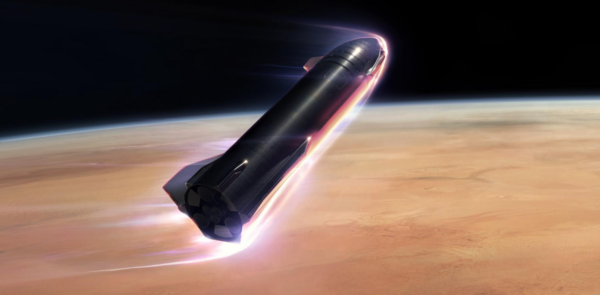Even though their rocket of the next generation has not yet flown, SpaceX is continuing to take reservations for trips on its Starship. On Friday, a startup company known as Astrolab said that it had recently inked an agreement with Elon Musk’s private space corporation to secure a slot on an uncrewed Starship cargo mission that might launch as early as the middle of 2026.
This is SpaceX’s first commercial cargo contract to the lunar surface

The mission is scheduled to take place sometime after 2026. Jaret Matthews, CEO of Astrolab, stated in an interview that “this is SpaceX’s first commercial cargo contract to the lunar surface.” Matthews also mentioned that his business was one of the few clients engaged in the journey.
Astrolab is currently working on the construction of a vehicle that they believe may one day be able to transport people, goods, and equipment around the surface of the moon. The Flexible Logistics and Exploration (FLEX) rover is around the same size as a Jeep Wrangler, which makes it somewhat larger than the Perseverance rover that NASA operates on Mars.
The Astrolab FLEX can transport cargo, equipment and people
In addition to that, it has a robotic arm that may be used to assist with freight, and it has a top speed of 15 miles per hour. Furthermore, FLEX has the capacity to transport a maximum of two astronauts.
Astrolab believes that once it has landed on the Moon, FLEX will become the biggest rover ever to go over the surface of the moon. According to statements made by Matthews to The Times, Astrolab already has clients wanting to employ the rover to deliver cargo on the 2026 Starship voyage.
In the long run, our objective is to have a team of rovers operating on both the Moon and Mars
Matthews said that FLEX could be able to help with the long-term goal of establishing a permanent human presence on the Moon and possibly even beyond afield. “In the long run, our objective is to have a team of rovers operating on both the Moon and Mars,” he explained. “And I genuinely think I see these vehicles as the catalysts ultimately for the off-Earth economy,” the speaker said. “[T]hey are already being developed.”

